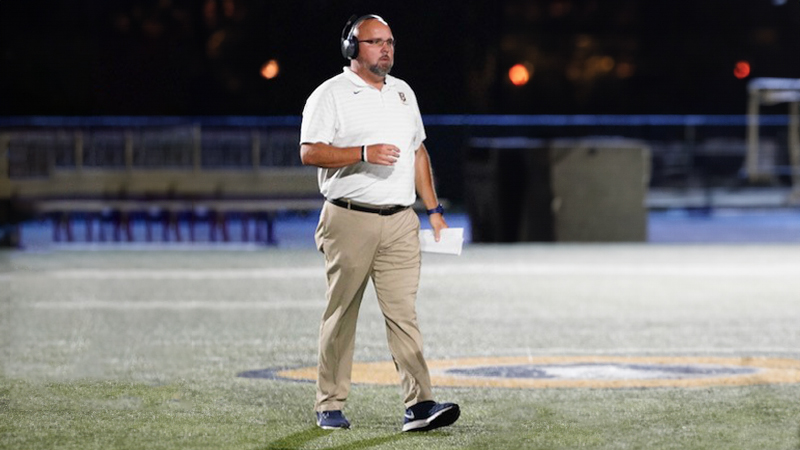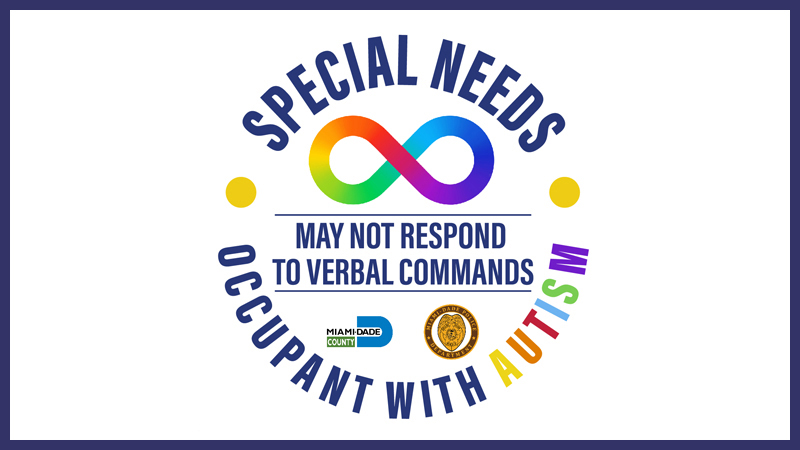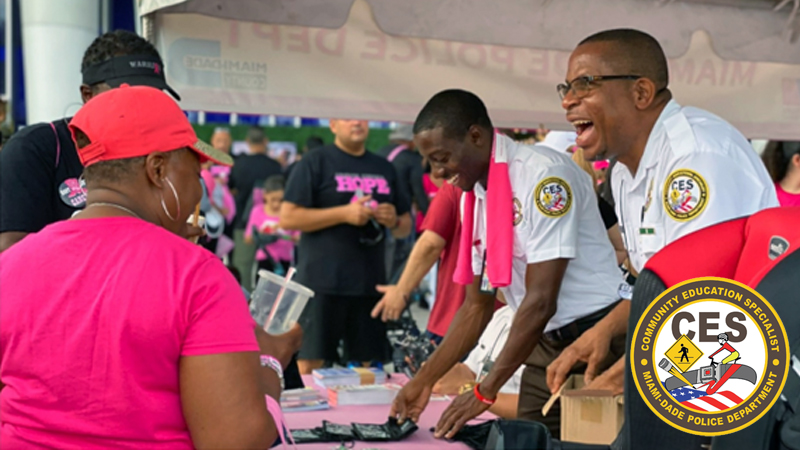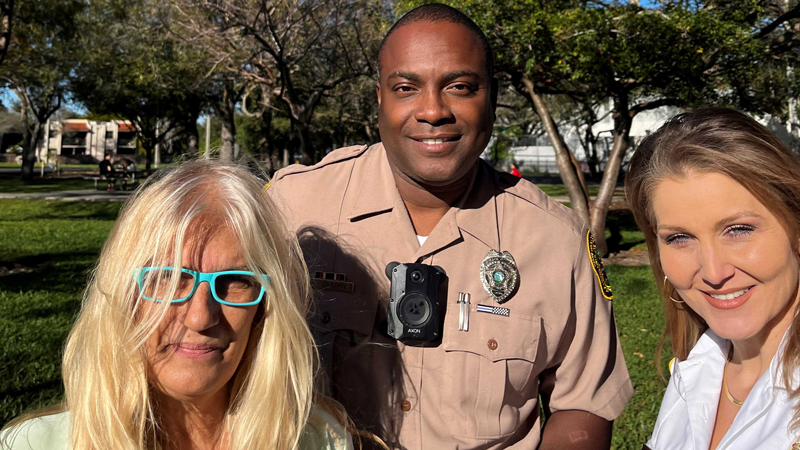-
News & Social Media
-
Create a new miamidade.gov account
A miamidade.gov profile allows you to link to your Water and Sewer customer account, as well as subscribe to a variety of news and alert services.
Receive weekly news & events, public notices, recycling reminders, grant opportunities, emergency alerts, transit rider alerts and more.
-
-
Employee Information
-
My Employee Portal
Employees can login to access personnel information, workplace tools, trainings and more.

-
Therapy Dogs are the Community’s Best Friends
February 22, 2024 —
Miami-Dade Police Department
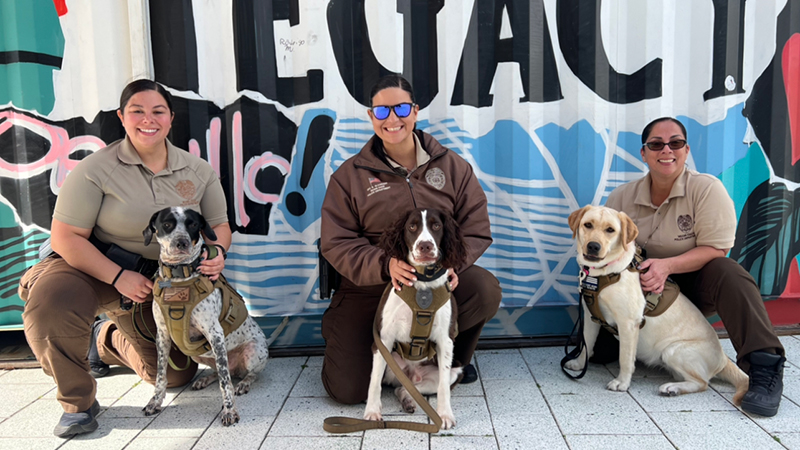
In 2019, the Miami-Dade Police Department initiated a therapy dog pilot program, introducing “Sparky,” an irresistible American bulldog mix, and Officer Julio Comas as his dedicated handler. Sparky quickly became a favorite within the Kendall District, captivating officers and civilians alike. The overwhelming positive response led to the expansion of the program in 2021, welcoming “Dottie,” a charming German short-haired pointer mixed with Bluetick coonhound, and her handler, Officer Alejandro Munoz, stationed at headquarters.
The program continued to grow with “Amanda,” a black Labrador terrier mix, becoming the first "legacy" dog in 2022, honoring the memory of Detective Amanda Lynn Haworth, who was killed in the line of duty in 2011. Canine Amanda’s handler is Officer Manuel Rodriguez. Somo, an English Springer Spaniel, and Evelyn, a yellow Labrador retriever, joined in 2023. Their handlers, respectively, are Officer Rita Alvarado, and Officer Jody Rodriguez. The five dogs, five handlers, and supervisors, now comprise the Community Oriented Support Dog Unit. Somo is named after Officer Jose Lazaro Somohano, who was killed in the line of duty in 2007. Evelyn is named after Officer Evelyn Gort, who was killed in the line of duty in 1993.
Police Reserve Officer Grace O’Donnell, a trailblazer in the department's history, played a pivotal role in establishing the unit. Her commitment to community support, coupled with her passion for therapy dogs, laid the foundation for this heartwarming initiative. She was the department’s first Hispanic female sergeant, lieutenant, captain, and major. She was hired in 1974 and retired in 2010, but has remained connected to the department since that time, as a reserve officer working with therapy dogs.
All of the dogs are rescue dogs from the Miami-Dade Animal Services Pet Adoption & Protection Center, and are selected based on their temperament. Rigorous training, spanning up to 10 months, ensures they meet American Kennel Club (AKC) Canine Good Citizen, and therapy dog titles. The Canine Good Citizen training alone includes 10 obedience commands and is the first level certificate awarded for dog obedience. Among the 10 standards are sitting politely, accepting a friendly stranger, sitting politely for petting, sitting down on cue, and coming when called.
The dogs also undergo certification by the Alliance of Therapy Dogs (ATD), done over a minimum of three observations by an ATD tester/observer. At least two of the visits have to be performed inside a medical facility such as a hospital or nursing home. The dogs undergo evaluations in various environments, from busy malls to sports arenas, to ensure they can handle diverse stimuli. Wearing vests identify them as therapy dogs during work hours, but after work, the vests come off and they are integral parts of their handlers' families at home.
The dogs' primary role is offering a "welcome distraction," exemplified during the Surfside building collapse, where Dottie and Sparky provided solace amidst grief outside that town’s community center, the staging area for the families of the victims and surviving residents. As authorities worked with families on the identifications of victims and finding emergency accommodations, the dogs did provide that welcome distraction, just by their mere presence outside the entrance to the facility. Crowds gathered around the animals, petted them, and talked with their handlers. Children kneeled down next to the dogs and stroked the tops of their heads. For those brief moments, the conversations veered away from the tragedy that was unfolding.
Dispatched to schools, hospitals, nursing homes, and even the periphery of potentially dangerous situations, these therapy dogs bring comfort and relief. Beyond community outreach, they play essential roles within the department's Psychological Services Section, contributing to the Peer Support Unit and the BOBS (Backing Our Brothers and Sisters in Blue) Team, symbolizing the commitment to mental health and wellness within the department.
Leaving Miami-Dade County
You are now leaving the official website of Miami-Dade County government. Please be aware that when you exit this site, you are no longer protected by our privacy or security policies. Miami-Dade County is not responsible for the content provided on linked sites. The provision of links to these external sites does not constitute an endorsement.
Please click 'OK' to be sent to the new site, or Click 'Cancel' to go back.
